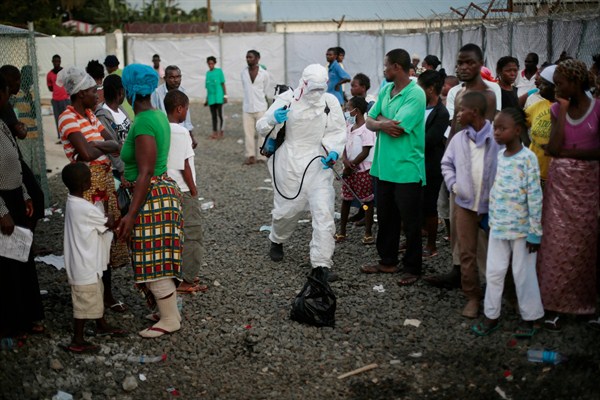On July 2, the World Health Organization announced the end of the latest Ebola outbreak, which took place in the Democratic Republic of Congo’s northern province of Bas-Uele. All told, four people died during the two-month outbreak, while four people survived infection with the virus. “With the end of this epidemic, DRC has once again proved to the world that we can control the very deadly Ebola virus if we respond early in a coordinated and efficient way,” said the WHO’s director-general, Dr. Tedros Adhanom Ghebreyesus. While Congo has extensive experience with Ebola, and the latest outbreak took place in a remote region where it was relatively easy to contain, public health officials continue to prepare for the possibility of a more difficult outbreak like the one that began in West Africa in 2014. In an email interview, Dr. Anthony Fauci, director of the National Institute of Allergy and Infectious Diseases, provides an update on that effort.
WPR: Did the West Africa Ebola epidemic produce sustainable gains in the world’s ability to respond to future outbreaks—for example, the recent outbreak in northern Democratic Republic of Congo?
Dr. Anthony Fauci: The Ebola outbreak in West Africa underscored the necessity of a sound public health infrastructure, including strong disease surveillance capabilities, when a highly lethal virus begins spreading in a community. The health care systems in Guinea, Liberia and Sierra Leone were quickly overwhelmed, allowing the epidemic to spiral out of control. Health care workers lacked the essential supplies and facilities to protect themselves and properly isolate patients. Contact tracing became increasingly difficult, and traditional burial practices facilitated further spread of the virus. Unlike West Africa, the Democratic Republic of the Congo has considerable experience responding to Ebola outbreaks using proven public health measures. These outbreak control practices, implemented with significant international assistance, ultimately halted the spread of Ebola in West Africa and will remain critically important in controlling future outbreaks.

